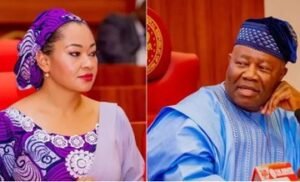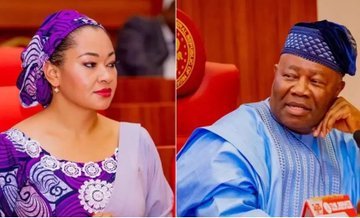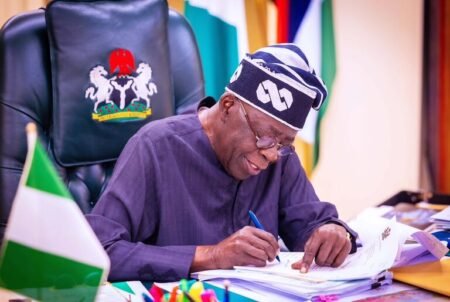The Senate on Wednesday, passed two of President Bola Tinubu’s four proposed tax reform legislations, marking a significant step forward in Nigeria’s continuing overhaul of the tax administration system.
The Nigeria Revenue Service Establishment Bill and the Joint Revenue Board Establishment Bill have both been accepted as legislation.
Their passage came one day after deliberations were postponed to allow MPs to address problematic sections in the proposals.
However, the Senate rejected a plan to boost the value-added tax from 7.5% to 10%, preferring to maintain the present rate amid growing public anxiety over rising living costs.
Tinubu submitted the four tax reform proposals to the National Assembly in October 2024 as part of broader fiscal changes aimed at increasing revenue collection and strengthening public finance management.
The legislation was approved after a two-hour assessment of the report submitted by the ad hoc committee chaired by Senator Sani Musa, who represents the Niger East Senatorial District. The session ended about 5:30 p.m.
Godswill Akpabio, the Senate President, announced the passage following a majority voice vote and praised members for their cooperation in revising and deleting contentious provisions.
“These bills will add immense value to governance and transform the way taxes are collected and distributed in Nigeria,” Akpabio said.
“We hope they will revolutionise tax administration. I thank all senators for their sacrifices in producing a document that will stand the test of time for the collective good of Nigerians.
“We will complete work on the two remaining bills tomorrow (Thursday), even if we must sit until 10 p.m. We’ll resume by 12 noon for further deliberation and voting.”
The Deputy Senate President, Barau Jibrin, applauded his colleagues for the progress made, despite early disagreements.
“It’s normal to disagree to agree, especially on such sensitive matters,” he said.
“The Committee on Finance and the Committee of Elders deserve special commendation for their wisdom and leadership.
“Initially, there were disagreements and rancour. But the Senate, being the highest legislative body in the land, wisely constituted a Special Committee to engage with stakeholders, including religious leaders, regional organisations, and the Nigerian Governors’ Forum.
“Thankfully, all contentious areas have been resolved. This is the beauty of democracy, and I am proud of the maturity this Senate has shown.”
The House of Representatives had already passed Tinubu’s four tax bills.
The Senate’s concurrence paves the way for a new tax regime in Nigeria once the bills are transmitted and signed into law by Tinubu.











